Stories of Electrification
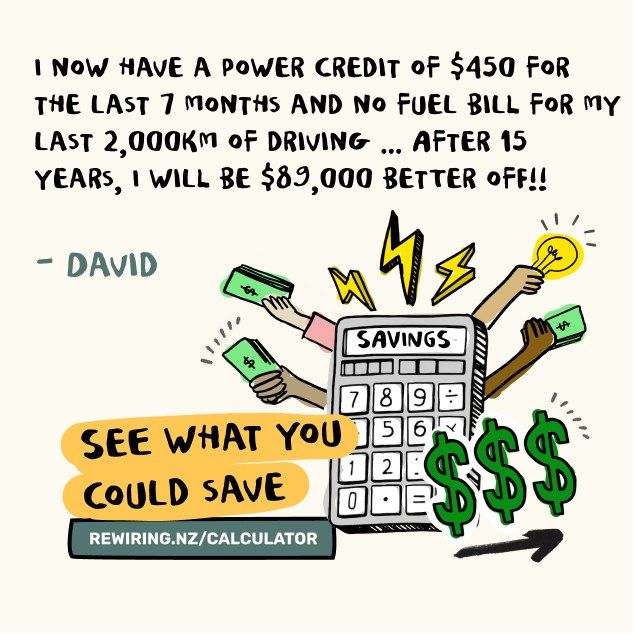
I now have a power credit of $450 for the last 7 months and no fuel bill for my last 2,000km of driving ... After 15 years, I will be $89,000 better off!!
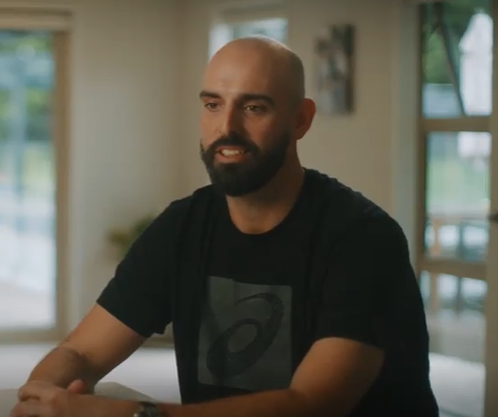
Via Ecotricity

With the goal of using solar as a means to further embrace a green lifestyle, Nick also used this install as an opportunity to teach his children about sustainability and the environment.
Via Thinksolar.

“With power bills rising and solar panels becoming more efficient than ever, there’s no question this saves you a significant amount of money.”
Via Lightforce

Overall, we are at about 55% self sufficiency and I have calculated a 9 to 10 year payback at 5%. Across the year, our daily energy cost is $6.13 per day – the price of a coffee.

"The savings have been more than what we thought they would be, it’s one of the best things we have ever done."
Story via Lightforce Solar

With a roof full of fresh panels and a garage housing the latest battery tech from Tesla, Ian shares his experience with the Christchurch Solar team, and how he is reaping the benefits of clean sustainable energy.
Story via Christchurch Solar

Our solar panel and residential battery system has now been up and running for seven years and nine months, and we haven’t had to pay a power bill since September 2017, thanks to solar feed-in credits from our carbon-positive certified electricity retailer Ecotricity and generous distribution charge discounts from our local lines company Northpower ... In October 2017 we got our electric car we'd been saving for separately, as it had always been the plan to get one, once they became affordable and provided us with enough battery capacity and range for our travels. We've driven more than 41,000 km since then, and we’ve paid a bit more than $114 in total for "fuel electricity” at ChargeNet rapid charger stations when on longer road trips, while the rest of the time we've been charging at home for free. That's less than 28 cents per 100 km.

We built a new rural home in 2022 and fitted 10kW of solar and 28kWh of battery storage. We average 11mwh consumption and 14mwh production annually ... There are zero fossil fuels required to run our home.

When the sun is shining, and even on dull days, we use the solar in the house and then charge the cars as it comes off the roof. What we don’t use charges the battery in the garage. Once that is full, it heats our hot water, and after that we get paid for selling it back to our energy retailer. All up, the sun gives us around 8,320 units of electricity per year. We sold around 2,045 kWh of that back to our retailer and made about $400.

When we moved into our house 18 years ago we were burning fossil fuels for water heating, space heating, transport and cooking. Over the years we've made economic, practical and heath decisions to buy electric when replacing our machines.

I fully electrified my house and have saved $23,000 in two years, about a 10% return.

Via Dunedin Solar
.jpg)
The 68-panel solar system, featuring Trina Vertex S+ technology, is expected to slash the church's monthly electricity bill by an average of $559 ... It has been calculated that the panels will help reduce 4.6 tonnes of CO2 per year.

Via EECA

Solar energy for a business application is perfect because we're using the majority of our energy during daylight hours. We're a warehousing operation... Discover how businesses are powering forward with electrification.
Video via Choice Energy

From 1st January 2024 to 17th March 2024 the average cost per kWh was (minus) -$0.103. Currently in credit to $86 for the year-to-date. So far, I'm ve... Discover how businesses are powering forward with electrification.

Electric Home Case Study - Geoff Webster
Ditching gas and saving $3,500+ yearly, this home in Ellerslie runs mostly on sun and batteries.
See Case StudyVisit Link
Electric Home Case Study - Macknight Whānau
Read how this Dunedin family has saved around $50,000 since electrifying.
See Case StudyVisit Link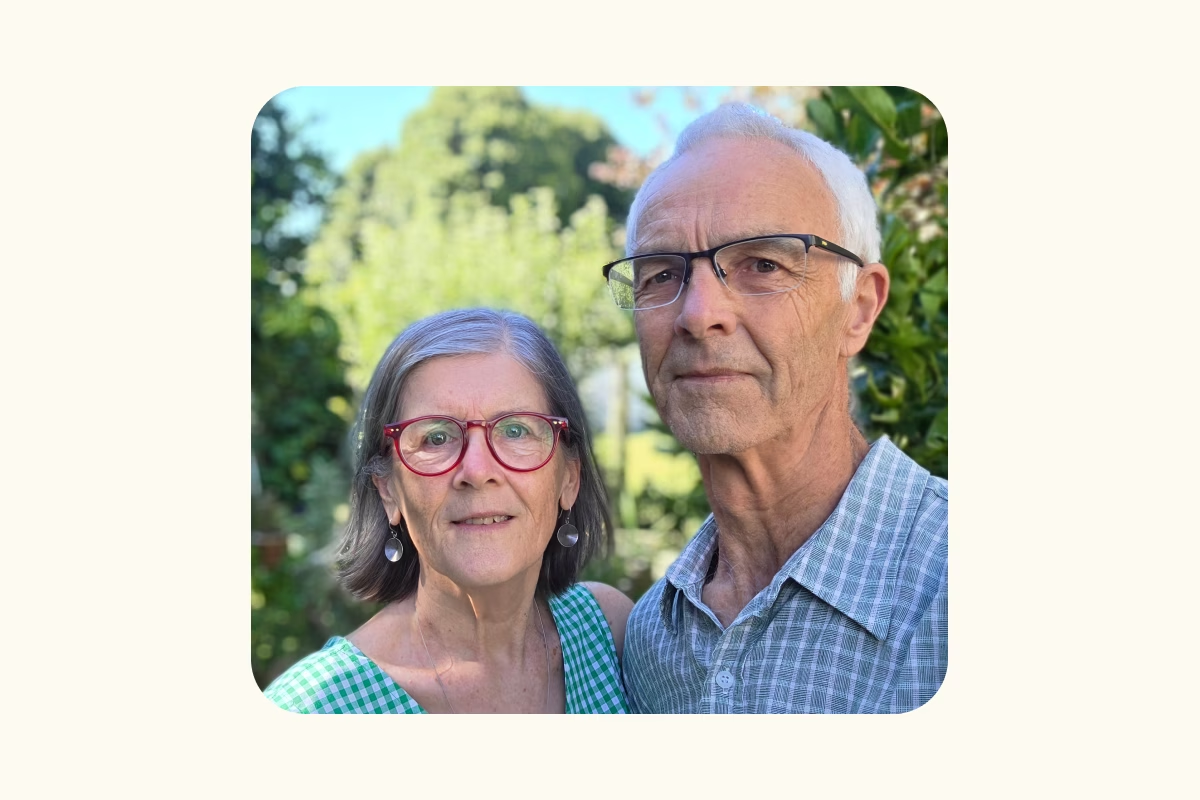
Electric Home Case Study - Eddie & Hilary
This Three Kings couple generates 90% of their electricity needs, saving $1,200/year with solar and an EV.
See Case StudyVisit Link
Electric Home Case Study - Simon & Nicky
This Wairarapa couple slashed their energy costs from 37c/kWh to 5c/kWh with solar resilience through 3 power outages.
See Case StudyVisit Link
Electric Home Case Study - Rob van Rossen
See how this Ōhope couple saves $7,200/year with solar, outperforming their retirement investments.
See Case StudyVisit Link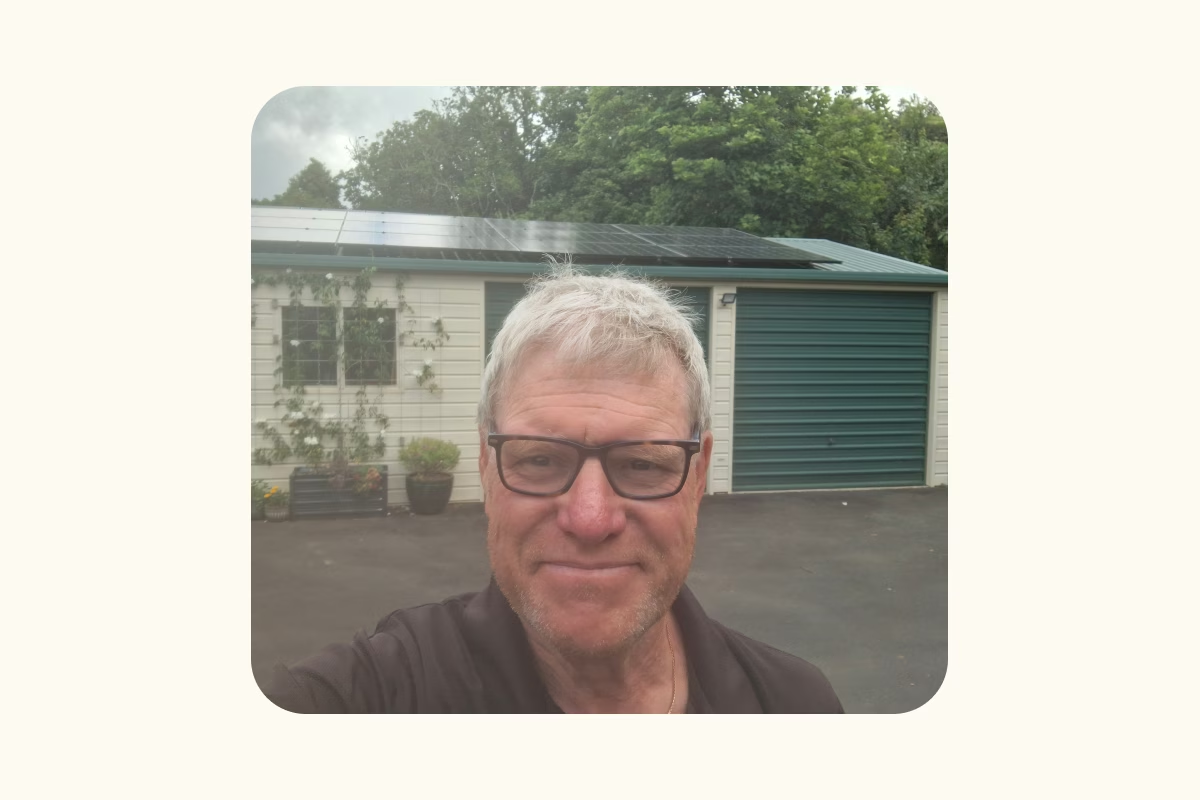
Electric Home Case Study - Ken Nelson
This newly electrified Whangārei home is slashing their power bills by around 75% after going solar.
See Case StudyVisit Link
Electric Home Case Study - Rombout van Riemsdijk
This Whanganui early adopter has been living fossil-fuel-free since 1978 with solar and 2 EVs.
See Case StudyVisit Link
Electric Home Case Study - Jonathan Holmes
Jonathan's Wānaka home saves more than $10,000 a year - see how.
See Case StudyVisit Link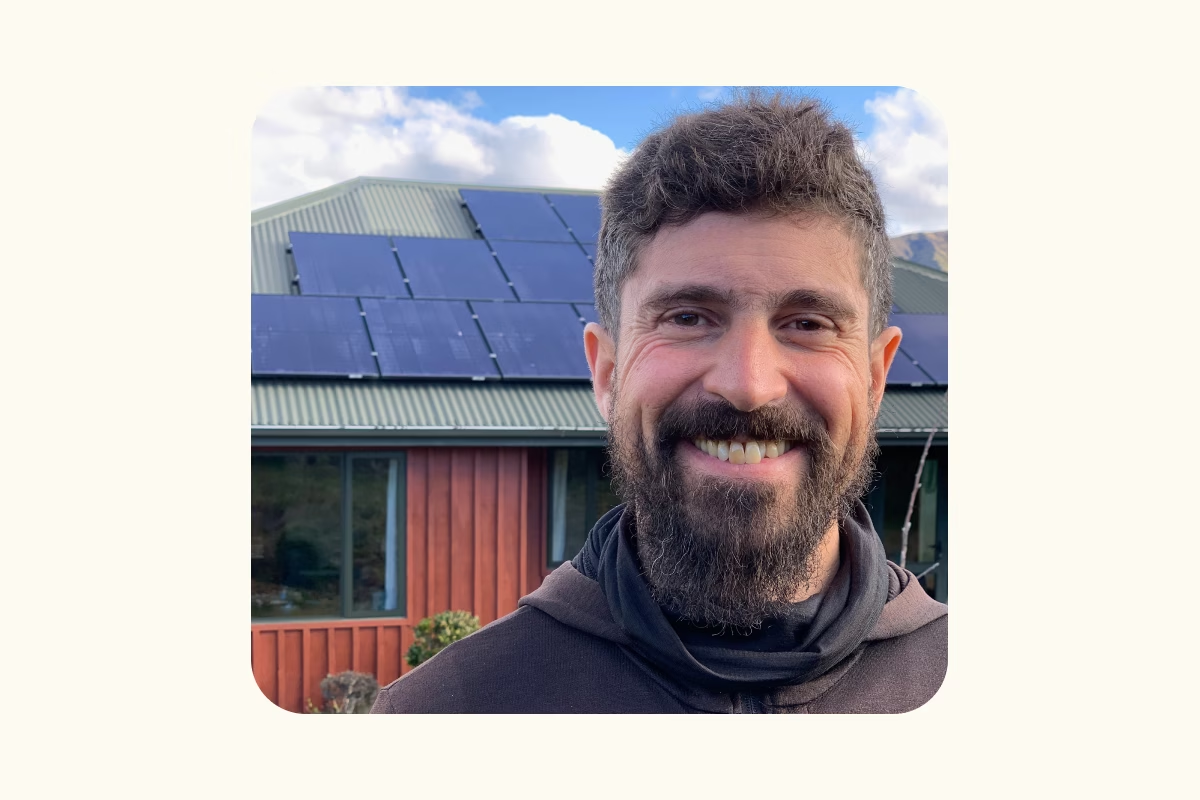
Electric Home Case Study - Pierre Marasti
Read how this Wānaka couple has saved $50,000 over 7 years living with zero emissions.
See Case StudyVisit Link
Electric Home Case Study - Lyn D
See how a Christchurch retiree turned rooftop solar into $ returns better than her investment portfolio.
See Case StudyVisit Link
Electric Home Case Study - Tom Crowder
This part-electrified Hibiscus Coast family already saves $2,880/year with solar and an EV.
See Case StudyVisit Link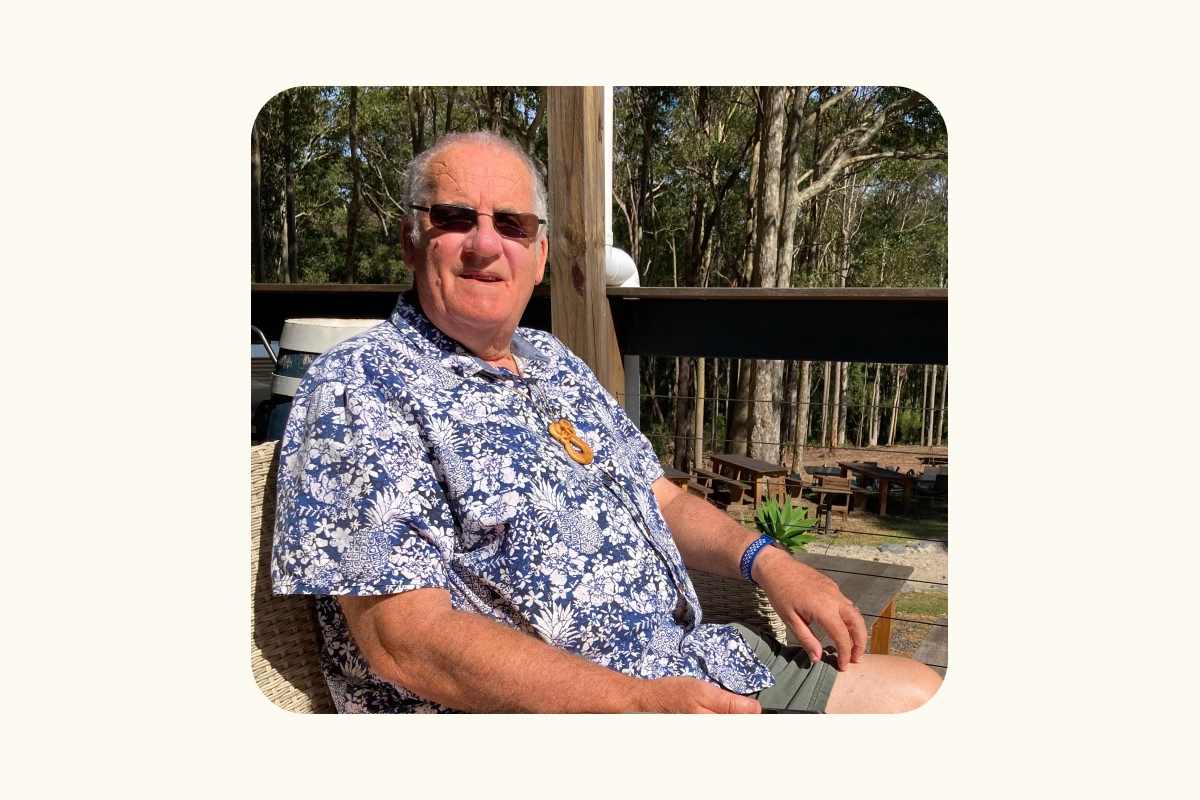
Electric Home Case Study - Ken Dixon
Ditiching gas and firewood for solar and heat pumps saves this household $1,800 a year.
See Case StudyVisit Link
Electric Home Case Study - Andrew M
This West Auckland family saves more than $10,000/year with a fully electric home and EVs.
See Case StudyVisit Link
Electric Home Case Study - Tony Stephens
This Nelson household went from paying $3000+/year for power to earning $250/year by exporting solar.
See Case StudyVisit Link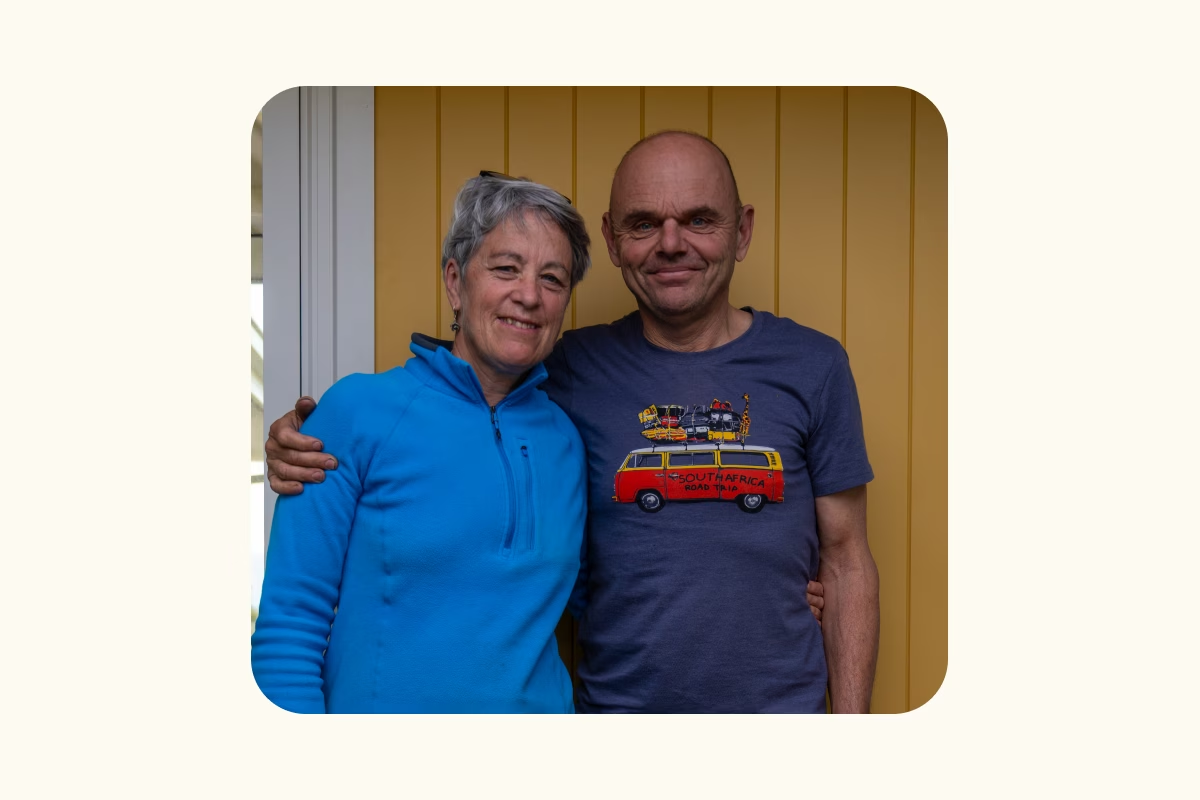
Electric Home Case Study - Greg & Sue
Find out how this Nelson couple built a no-bills all-electric home.
See Case StudyVisit Link
Electric Home Case Study - Luisa & Steve
This Napier couple saves $3k a year with solar, EVs and electric appliances.
See Case StudyVisit Link
Electric Home Case Study - Tisch Whānau
This Christchurch family saves nearly $3k with solar and electric appliances.
See Case StudyVisit Link
Electric Home Case Study - Michael & Leeza
See how a Christchurch couple save $4k+ / yr on bills by electrifying.
See Case StudyVisit Link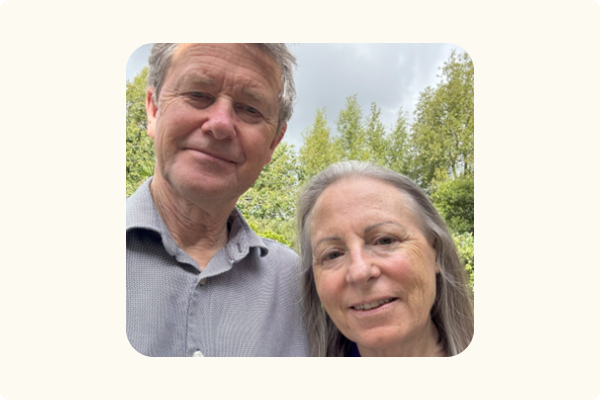
Electric Home Case Study - James & Lynne
Read how a Lower Hutt couple achieved near $0 bills by electrifying.
See Case StudyVisit Link
Electric Home Case Study - Ben Fahy
See how a local saves $6k+ /yr on bills by electrifying.
See Case StudyVisit Link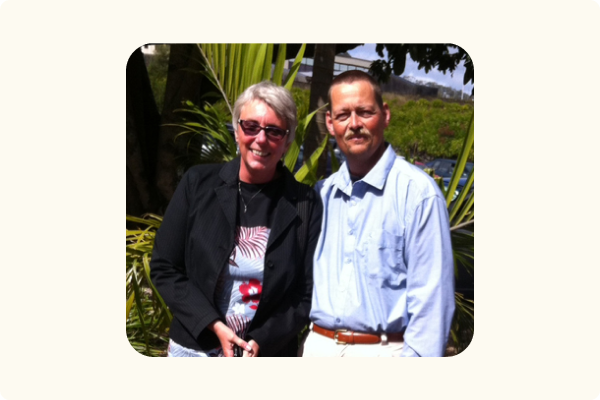
Electric Home Case Study - Oliver & Hildegard
Read how a Northlander couple achieved $0 bills by electrifying.
See Case StudyVisit Link.svg)
Check out our privacy policy here


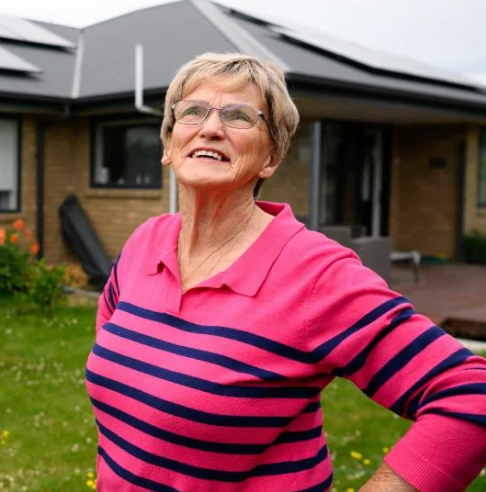
.png)


.svg)